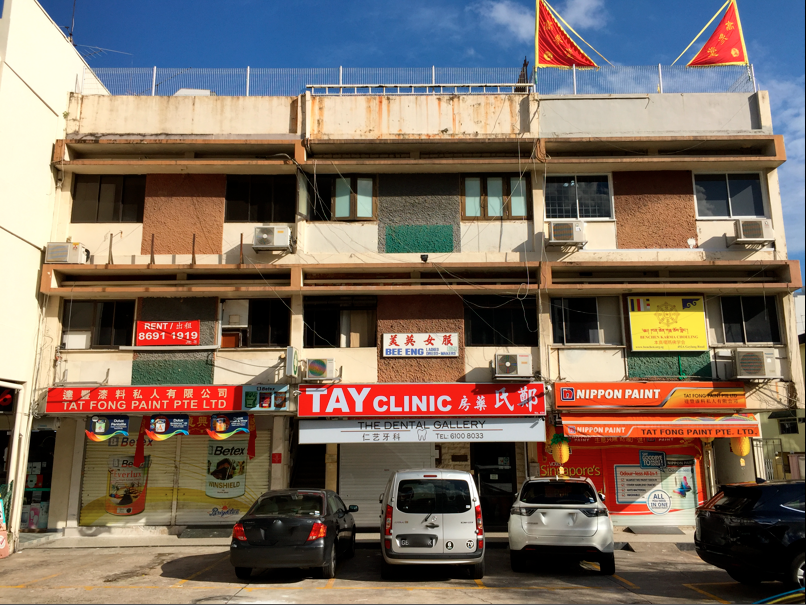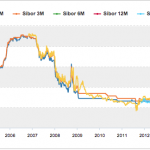8 things to consider before you refinance commercial property loan
Servicing your loan every month and seeing your bank balance taking a dip can be quite depressing.
What if you had a chance to lower your mortgage payment or even raise more funds on your property?
When the window opens for an option to switch to another financial provider, it should be considered as it offers you an opportunity to get better terms from your previous loan. This is similar to refinancing for home loan.
By Angeline C
Image Credits: Geylang Commercial Shophouses, Paul Ho, www.iCompareLoan.com
Most commercial and industrial property loan packages offer a step-up package. That means, it goes like this (illustration only): –
- Year 1 = 1.5%
- Year 2 = 1.8%
- Year 3 = 3%
This means that many owners of commercial properties are compelled to refinance every 2 years or else the interest cost will eat them alive.
Commercial property includes retail, office, HDB shophouse, strata title shops, conservation shophouses, hotels, commercial buildings and mixed development.
Commercial property became increasingly attractive as an investment option following the cooling measures implemented in the residential segment such as the introduction of additional buyer’s stamp duty (ABSD) in 2011 followed by an upward revision in the ABSD in 2013.
Most are likely to have taken up a loan to finance this investment. Now, is it time to refinance the loan?
For those of you who do not yet own a commercial property, but are renting your premises, you may want to use this commercial property rent or buy calculator for a rough gauge.
Here are 7 factors for your consideration:
- Rationale for Refinance of commercial property
If you hold a commercial property, you are likely running a business there or an investor – whether as an individual or under a corporation or investment holding company.
Any decision would probably require you to do a cost-benefit analysis.
The main reasons for refinancing or switching to a loan from another financial institution include raising cash, capitalizing on low interest rates to cut financing costs and a change in loan tenure.
- Valuation of Commercial property
It is important to be up to date on the current valuation of your property as it will determine the maximum loan and the possibility of having to top up the equity to qualify for refinancing a commercial property. Given the current weak sentiment, it is possible that it is significantly different from the time you got your original loan.
- Affordable?
Use our calculator to see if the mortgage payments on the new loan is affordable given your current salary. Click Refinance commercial property loan to calculate the mortgage payments from the different financial providers.
- Change in credit situation
Since the last time you took the loan, has your salary/company’s results/financial position improved or deteriorated? Have you been late in payment of debt? Did you sign on to be a guarantor or taken up more debt? Do you have a tenant? What is the remaining lease? All these factors will be considered when you apply for refinancing as your credit profile will be reassessed.
- Costs
Refinance commercial property may lead to costs such as those relating to valuation, legal, etc. Look out for promotions where banks/financing companies waive charges.
- Clawback and lock-in period
Review your letter of offer and read up on the clawback and lock-in period to ensure that refinancing makes sense for you. If the switch is onerous and costly, it may not be worthwhile.
- Shop around
Once you have done your homework on the above, you can shop around for the financial institution that offers the loan package that suits you and look out for promotions. Click here to view the loan package from the various financial providers, but do note that there are different rates for personal name or bought under company name.
- Documentation
You will likely be asked to provide the following in the application if you refinance commercial property. Have these ready on hand if your property is bought under a company name.
- Copy of NRIC/Passport
- Income statement and/or audited financials (corporation)
- Bank statements
- Loan account statement from existing financing company showing repayment history
- Latest CPT withdrawal statement for property to be refinanced (if there is utilization of CPF)
- Title Deed
A good Mortgage broker can assist you to refinance commercial property safely, further more, it’s free of charge as they receive a fee from the bank when a loan is completed.
Think of them (mortgage brokers) as Supermarket assistants who can guide you on a number of brands of noodles. Talk to them about your taste, whether you want it a bit salty or sweeter, spicy or not, etc. They will find you the right noodles (erm. Bank loan) on the shelf.
To find the latest and best loan package to refinance your commercial property, click here.
To read our guide to housing refinancing in Singapore, click here or here if you want to buy a property in Singapore.







